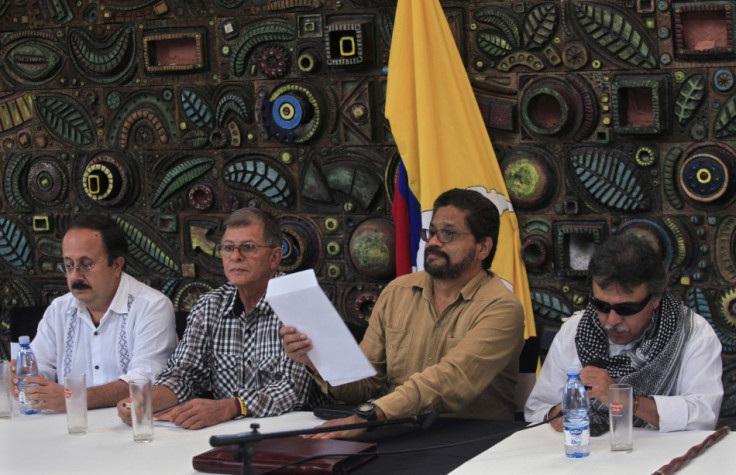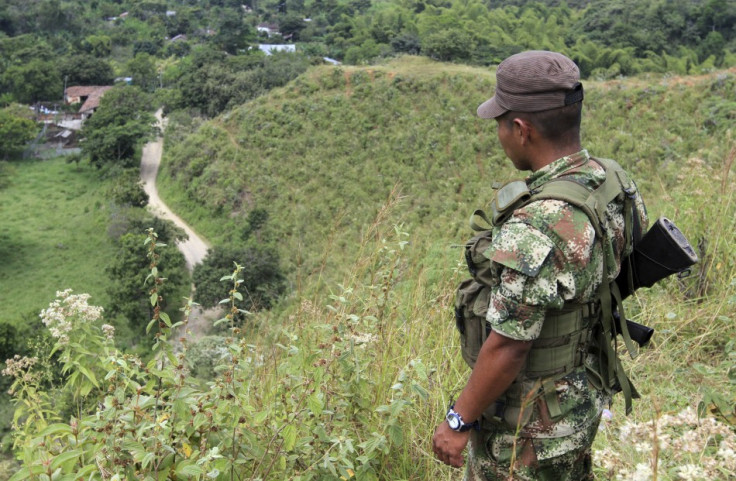Colombia: Farc Talks will Unlock a New Economic Powerhouse in South America

By all rights, Colombia should be one of the most vibrant nations in South America and an economic powerhouse to rival Brazil. The country is blessed with some of the most verdant and varied landscape on earth, from the ancient splendour of Santa Marta to the Amazonian rainforest which teems with wildlife. Long-standing ties with the United States give the economy a cast-iron anchor, and Colombia's coffee and sugar exports remain buoyant despite the global downturn. And international stars such Shakira and Sofia Vergara lend their homeland a glitzy, cosmopolitan allure.
But ask a British person what they know about Colombia and all too often you will hear one, or both, of two tired themes: guns and drugs. For many people Colombia remains a furtive, dangerous place, associated as much with cocaine as coffee; the spirit of Pablo Escobar, perpetuated by modern-day 'narcos' such as Daniel Berrera, aka 'el Loco', only serve to cement this reputation for violence and corruption. But now, at last, the Colombian government is locked in negotiations which could dispel this toxic image and allow the country to fulfil the potential which has lain dormant for generations.
The government, led by President Juan Manuel Santos, is currently negotiating with the guerrilla group Farc, one of the world's most notorious terrorist organisations. The conflict between Farc and the national government has been going on for 50 years; Manuel Santos and his ministers hope the present negotiations in Havana, Cuba could finally end the conflict, and declare Colombia's intention to become a key player in the new global economy. Colombia's problems with guerrilla insurgents began with a peasant revolt against inequality in the 1960s, and since then several official attempts have been made to end it. Although President Virgilio Barco was able to neutralise the M-19 movement with a peace agreement in 1990, whereby the guerrillas surrendered their weapons and turned their attentions from terrorism to conventional politics, attempts to rid the country of Farc have been less successful.
In 1999 President Andres Pastrana gave the guerrillas a demilitarized zone of more than 42,000 square kilometres of Colombian territory, about the size of Switzerland, in an attempt to engineer dialogue and thereby peace, but this dialogue was broken in 2002. In fact, according to analysts this period (1999-2002) served only to allow Farc to strengthen and regroup. During the 2002-2010 period of Álvaro Uribe, the government launched a military offensive against the guerrillas, which eliminated some of the leaders and forced the group to retreat but fell short of overall victory.

The current president Juan Manuel Santos has been negotiating with Farc for several months. The first phase took place in absolute secrecy and discretion for over a year; the second phase began in Oslo, Norway and is continuing in Habana. The discussions are predicated on a General Agreement for ending the conflict, whereby the government promises to promote rural development, improve access to land, guarantee the right to political opposition and compensate victims of the country's conflicts. In return, the agreement demands that Farc ends its armed resistance, delivers its weapons and reintegrates into civilian life.
The current process is framed in clear rules of operation, and backed by international support from the governments of Venezuela, Chile, Cuba and Norway, the latter pair having agreed to serve as guarantors. The process has not been without its problems; in fact the guerillas' representative, Iván Márquez, said the two sides still hold divergent views on several issues pertaining to social equality. These include mining, the division of large estates and the property line in the countryside, the foreign ownership of land and cattle ranches, and the creation of a fund for the benefit of farmers. For his part, the former vice president and head of the government delegation, Humberto de la Calle, said that there are still "complex issues" to address.
The parties are in recess until April 2, when negotiations will resume in search of agreement on the promotion of rural development and access to land, a key part of the negotiations. The road to a lasting solution remains long and uncertain. Yet, despite the complexity of the process, there is room for confidence and optimism; there is a growing belief in Colombia that this process will eventually end over 50 years of violence, and unlock the true potential of Latin America's sleeping giant.
© Copyright IBTimes 2025. All rights reserved.





















